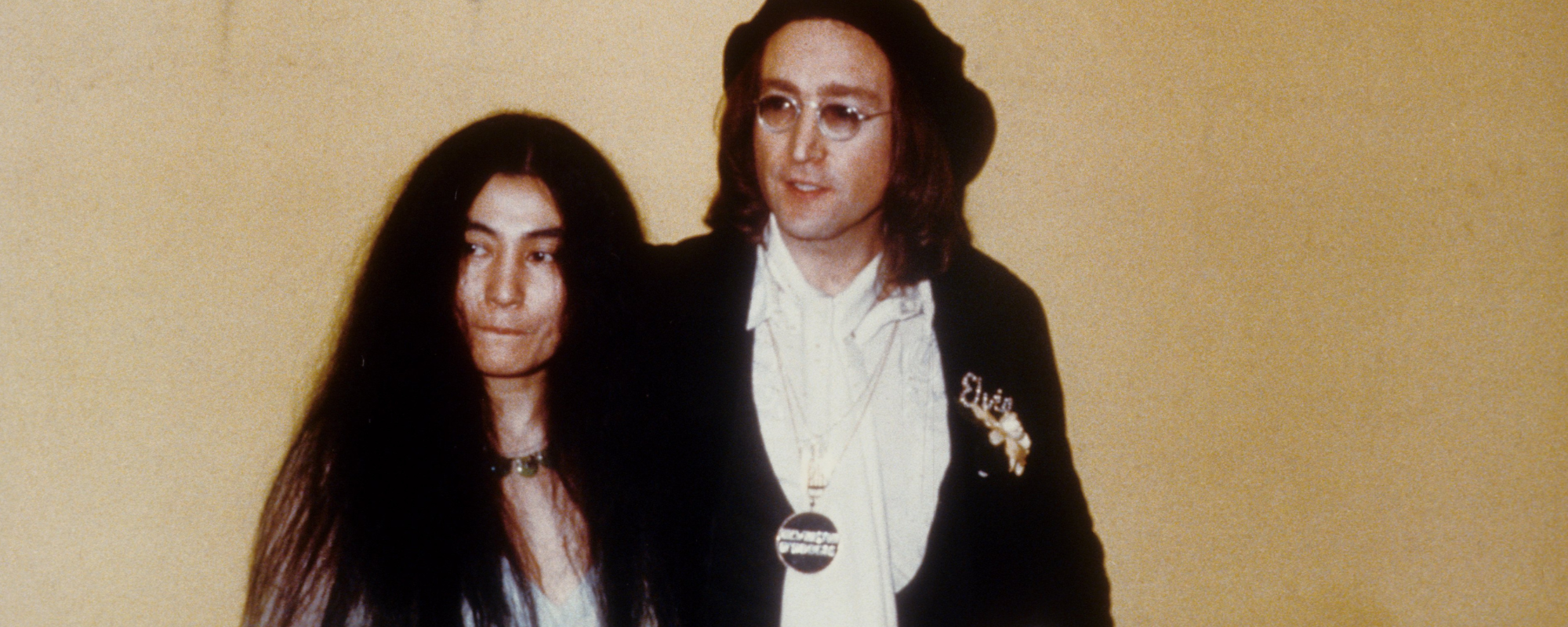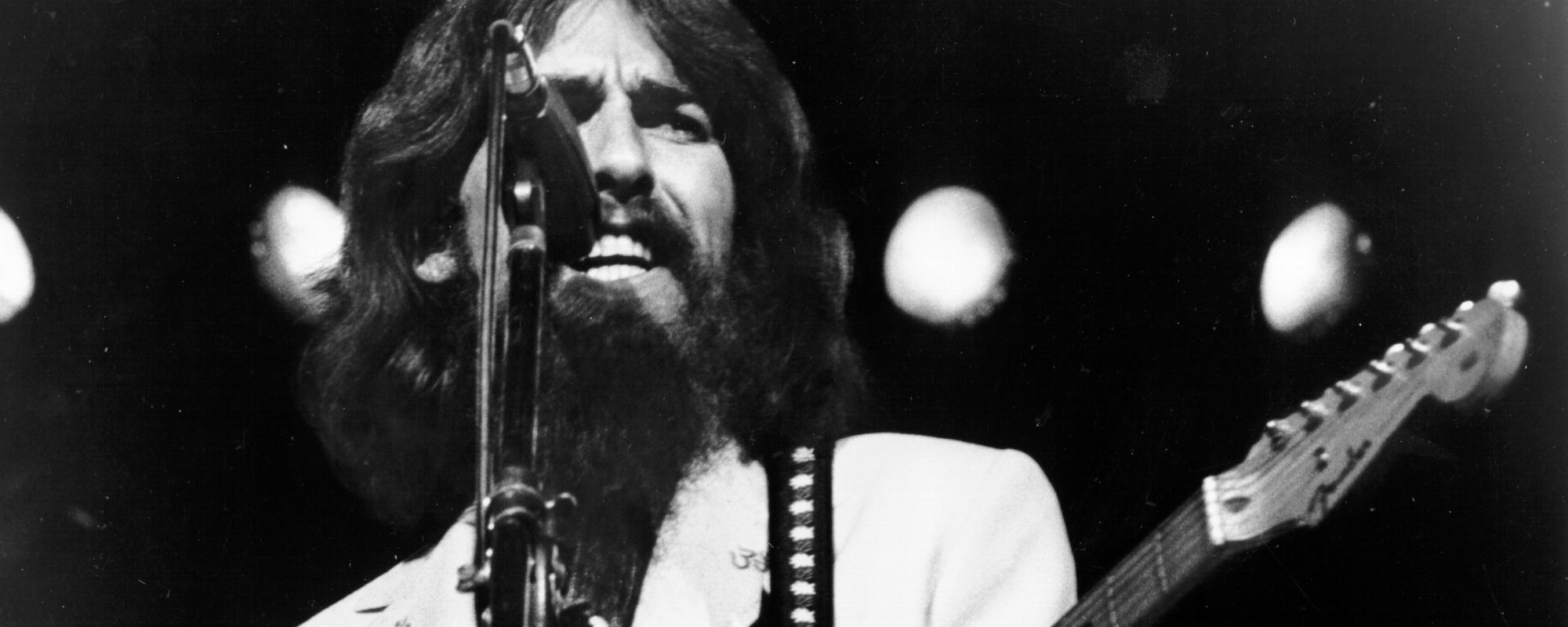When you’re a rock legend, chances are you have some harrowing experiences to share. Pearl Jam’s lead guitarist Mike McCready not only has stories to tell but also is ready to tell them in a new way. The Seattle-born artist has been playing his instrument since he was 12 years old, starting around 1979. From there, he saw the rise of the Pacific Northwest grunge rock scene and witnessed some of his closest friends and musical cohorts die as the result of fame and drug abuse. He’s since come out the other side, surviving his own health issues and struggles with addiction, to become a Rock & Roll Hall of Famer. Now, McCready says, he’s working on a script and soundtrack for a new rock opera that will tell the stories of his city and display the range of emotions many encountered on their paths to fame.
Videos by American Songwriter
“Nobody saw anything like this coming,” McCready tells American Songwriter about the mad dash to mine Seattle for its music standouts. “I’m writing the script right now, it’s something I’ve never done before. I just need to fucking finish it. That’s my main purpose right now.”
Today, McCready says, he’s appreciative of where he is in his professional career. Pearl Jam has achieved a lot, and continues to. The band finished a short Midwest tour in 2023. They have plans for more gigs and even a new album in 2024. The iconic guitar player is also celebrating the release of his own signature Stratocaster and his continued work to bring awareness and raise money for the Crohn’s & Colitis Foundation. He took the stage in late 2023 with his friends, the four-piece band Thunderpussy, for a benefit show for the Pacific Northwest chapter of the foundation. “I’m the fifth pussy,” McCready says, “that’s what they call me.”

McCready is the kind of person to wear many hats. He admits he likes to “keep my plate full.” As such, there is much to be proud of in his legendary career. At the top of the list, the rocker notes, is his band’s first record, Ten, which propelled them to stardom thanks to songs like “Alive” and “Jeremy.” The album, he says, to this day sounds like a band that had been together for a decade, despite only having had a few months with lead singer Eddie Vedder after he joined them from Southern California to jam. “I realized that we were firing on all cylinders,” McCready says of those first rehearsals with Jeff Ament, Stone Gossard, and Vedder.
Looking back on it, McCready takes pride in how he and his fellow musicians in Seattle were able to create a scene by doing things themselves. In the ’80s, they faced an arcane rule known as the teenage dance club ordinance, which essentially prohibited musical gatherings like local rock shows. McCready and bandmates in his early rock group, Shadow, would rent spaces, hire security, print flyers, and take out single-day insurance policies for events—all this as teenagers. But their hard work paid off in spades. For McCready, it led to more and more opportunities, like getting to play in the Andy Wood tribute band Temple of the Dog.
“I’d quit music,” McCready remembers. “I was totally depressed.” He’d moved to L.A. to find success but that hadn’t worked out, so he’d come back to Seattle. He was also suffering with severe symptoms from Crohn’s Disease. But then he got a call from Gossard for the Temple album, which was released in 1991. “I got a call out of the blue from Stone,” McCready says. “I came into that, and Chris [Cornell] didn’t have to let me be a part of that. But he was very engaging and supportive.”
Going into that era, McCready was especially “shy,” and he wanted to be careful so as not to ruffle any creative feathers with Temple of the Dog. But Cornell, the then-frontman for Soundgarden as well as Wood’s former friend and roommate who was also spearheading the tribute record, encouraged McCready to break out of his shell. At one point during a solo for the song “Reach Down,” Cornell told McCready to “go fucking crazy,” and McCready says, “I did, and that’s what’s on the record. [Chris] allowed me the freedom to play as hard as I could.” That was McCready’s first real big break. Something, he says, he also “never saw coming,” even though it was something he always wanted to manifest.
In rock circles these days, McCready is a bona fide legend. But how he wields that celebrity in the world and in his hometown remains interesting. When it comes to Seattle, he’s an integral part of the legacy of rock and roll there. Whether he’s partnering with bands like Thunderpussy or bringing others like Deep Sea Diver on tour with Pearl Jam, McCready has his eyes and ears out for local talent. He’s also not afraid to back local politicians or advocate for the return of the Seattle SuperSonics NBA team. “At the end of the day,” he says, “if we’re not helping people, what’s the point of life?”
Still, he’s aware that “celebrity, it’s a fleeting phantom.” But while he has it, he’s not afraid to use it for good (or for occasionally getting a table at a nice restaurant). Pearl Jam itself maintains an ethic of being helpful, from the group’s Vitalogy Foundation to individual members’ efforts to reduce homelessness or increase the number of skate parks in the city for kids.
Musically, the band continues to be hard at work, too. They recently tracked new songs with producer Andrew Watt, a lifelong fan of the band, and those sessions went great, McCready says. Watt pushed the members to play forcefully, including drummer Matt Cameron. “He’s just going off!” says McCready.
But no band, including Pearl Jam, which has been around since 1990, manages to avoid hiccups and hardships. The group had its fair share of difficult times over the years, from wars with Ticketmaster, to McCready’s issues with substance abuse (and his subsequent rehab), to hurdles with record companies and even a little internal friction. Luckily, McCready says, guys like Ament and Gossard had already endured professional issues with prior groups, so they knew how to navigate turbulence. McCready quickly says that he is, and was, “very lucky” to play with those guys. “I feel happy we’re still around,” the guitar player says. “The success had blown up so big that we were just kind of holding on for dear life.”
McCready says getting clean was “the best thing that ever happened to me,” and “the fact I’m still in the fucking band is a miracle.” He says he put his Pearl Jam mates “through a lot of stress in those early days” and they “stuck with me like brothers.” McCready says he’ll “love them always for that.”
But thinking about all of this is a bit of a double-edged sword for the artist. It makes him happy to think of the good times, but it also blows his mind to remember what Seattle was in its early days compared to what it’s become, with high-rise apartments, Amazon’s influence, and a dramatic population increase. It’s essentially a different city altogether, save for some shared memories and a few remaining landmarks.

“It just makes me feel moments of sadness,” McCready says. “And also question whether it was worth it for all those guys that died in the scene. I wish they were all around. Kurt [Cobain], Chris [Cornell], Layne [Staley]. What would they be thinking of? What would they be doing musically? I probably hyper-focus on that too much.”
As far as his work-in-progress rock opera, McCready says it will be “historical fiction” and he’s not going to “call anybody out by their real names.” It will be based on his own experience in “the front row” of the Seattle scene blowing up, along with the years prior that led to the explosion. In the 1970s and 1980s, he says, most big out-of-town bands wouldn’t book gigs in the city because of the aforementioned teen dance club ordinance. So, at some point, the city’s youth (McCready included) just said “fuck it” and manifested a scene and a music culture all on their own. That is the essence of what his new work will be about, he says.
“That gave everyone a chip on their shoulder,” he says. “Like, ‘OK, well f**k it, we’re going to do it ourselves.’” And the new rock opera, he says, will “have characters and story arc and triumph and tragedy and love.” McCready says he hopes to show it onstage and include the dynamic singer, dancer, and Thunderpussy frontwoman Molly Sides in the show. As of now, he says, he has the basic script and 16 songs that he will be singing—a new development in his creative arc. In the end, the work is both an homage to Seattle and the scene as well as a cathartic purge of all McCready’s memories and experiences.
As far as McCready and Pearl Jam are concerned, the group has always been a rock band, even though it was branded as “grunge” along with Nirvana, Soundgarden, Alice in Chains, Mudhoney, and others. McCready says he never really identified with the term outside of some marketing shorthand. But today, the group has lasted so long that it’s labeled under the “classic rock” umbrella. This development surprises McCready, who grew up listening to bands like Led Zeppelin, Jimi Hendrix, and The Rolling Stones on the radio, idolizing them and hoping to one day be a part of the culture they represented.
“Now,” he says, “I’m part of that universe. That’s a dream. If I can be labeled grunge or classic rock—I just want it to be good music. That’s the most important thing. I want people to feel something. That’s the most important thing about the music to me, the feeling. Even in creating it. It’s got to be that.”
Over the decades, McCready’s love for music has never faded. On any given morning, he will still be all-consumed with strumming one of his guitars, be it a 12-string, an electric, or a plain old acoustic. When asked what he loves most about what he does, the answer is simple and quick. “Oh my gosh,” he says, “that I get to do it and make a living at it!” McCready spent years as a young person working in restaurants and food service jobs around the city; in some ways, he remains in the business of providing and serving today.
“I love that the music still means something to people,” McCready says. “On tour, you see someone with a tattoo, or a person says, ‘You saved my life,’ or people get married at a concert. All of that stuff, I take that stuff very much to heart.”
Main image by Pearl Jam Touring












Leave a Reply
Only members can comment. Become a member. Already a member? Log in.